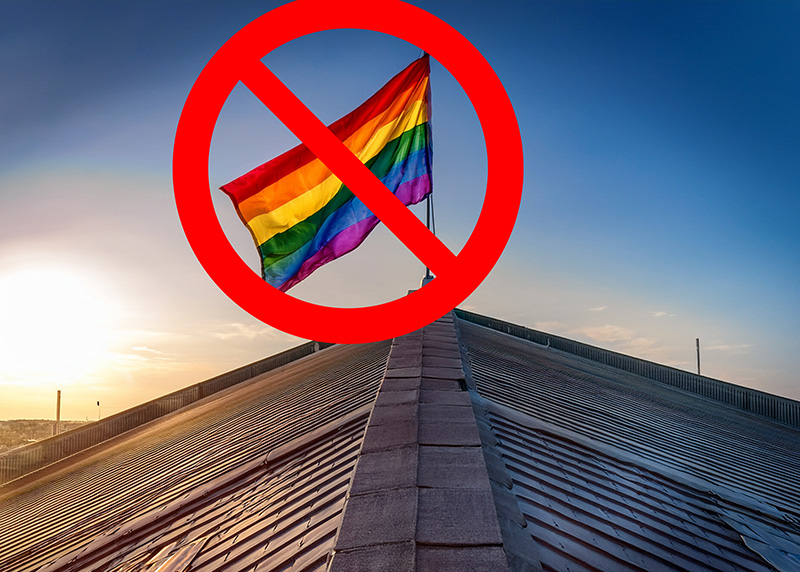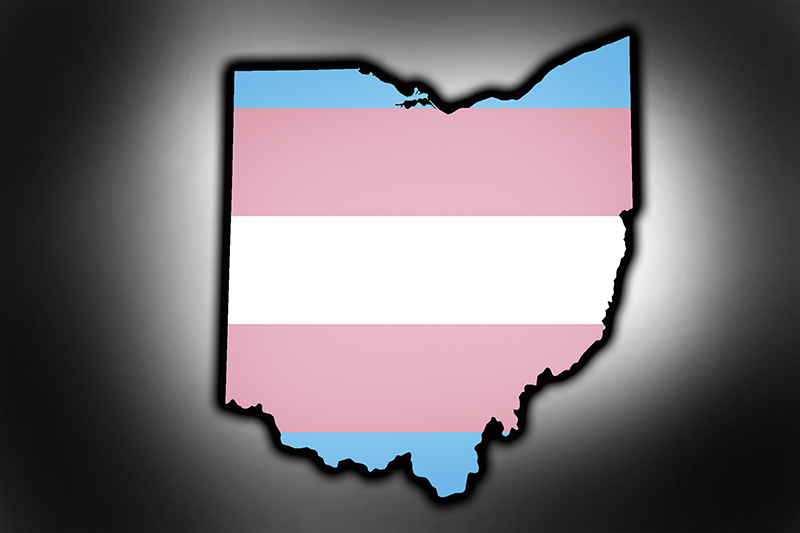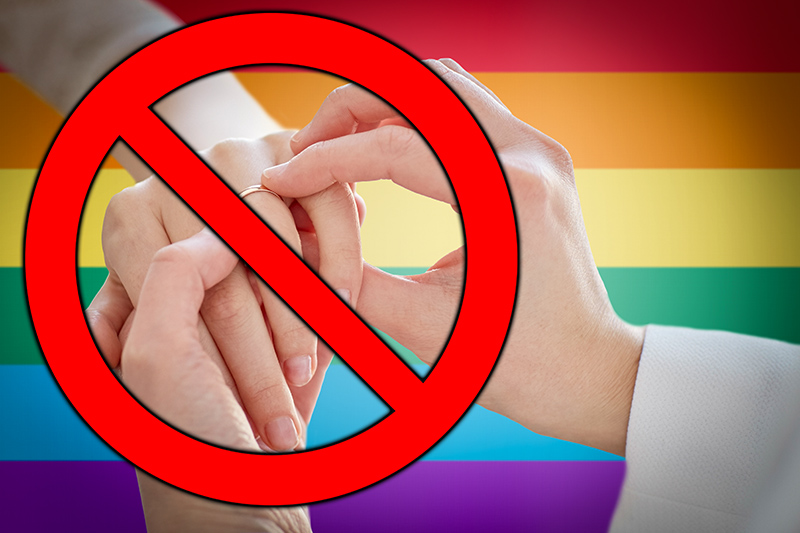2013 ends with flurry of advances for marriage equality

The year it set to end after a series of victories for marriage equality in numerous states, culminating with one federal court’s decision leading to the issuing of marriage licenses to same-sex couples in one of the most conservative states in the nation.
On Dec. 20, U.S District Court Judge Robert J. Shelby declared Utah’s ban on same-sex marriage unconstitutional in a 53-page ruling that found “any regulation adopted by a state, whether related to marriage or any other interest, must comply with the Constitution of the United States.”
“Applying the law as it is required to do, the court holds that Utah’s prohibition on same-sex marriage conflicts with the United States Constitution’s guarantees of equal protection and due process under the law,” Shelby wrote. “The State’s current laws deny its gay and lesbian citizens their fundamental right to marry and, in so doing, demean the dignity of these same-sex couples for no rational reason. Accordingly, the court finds that these laws are unconstitutional.”
According to the decision, the state provided no evidence that opposite-sex marriage will be affected by same-sex marriage.
“In the absence of such evidence, the State’s unsupported fears and speculations are insufficient to justify the State’s refusal to dignify the family relationships of its gay and lesbian citizens. Moreover, the Constitution protects the Plaintiffs’ fundamental rights, which include the right to marry and the right to have that marriage recognized by their government,” the ruling states. “These rights would be meaningless if the Constitution did not also prevent the government from interfering with the intensely personal choices an individual makes when that person decides to make a solemn commitment to another human being. The Constitution therefore protects the choice of one’s partner for all citizens, regardless of their sexual identity.”
The case was brought by three same-sex couples challenging Utah’s same-sex marriage ban, either because they sought to be married in Utah or were legally married in another state and wanted Utah to recognize their marriage. Utah voters approved a constitutional amendment banning same-sex marriage in 2004.
Although the Utah attorney general’s office appealed the decision to the 10th Circuit Court of Appeals, Shelby denied a request on Dec. 23 to issue a stay on his decision during the appeals process. Hours later, all but one Utah county began issuing marriage licenses to same-sex couples. On Christmas Eve, the 10th Circuit Court of Appeals also denied a request for a stay, allowing same-sex marriages to continue in the state while the case is appealed.
According to The Salt Lake Tribune, more than 1,225 marriage licenses had been issued in Utah between the day of the Dec. 20 ruling and Dec. 26. At least 74 percent of those were issued to same-sex couples.
But while same-sex families in Utah continue to celebrate their unexpected marriages, Utah officials have gone a step further, announcing they will appeal to the U.S. Supreme Court for an emergency stay in the case.
“The Attorney General’s Office is preparing an application to the United States Supreme Court requesting a stay of the district court’s order,” the Utah attorney general’s office said in a statement. “Due to the necessity of coordination with outside counsel the filing of the appeal may be delayed for a few days. It is the intent of the Attorney General’s Office to file with the Supreme Court as soon as possible.”
Shelby, meanwhile, has been attacked as an “activist judge” by Utah’s Republican Gov. Gary Herbert and the National Organization for Marriage. Although Shelby was nominated by President Barack Obama, he was supported during his confirmation process by Utah’s two Republican senators, Orrin Hatch and Mike Lee.
Any appeal will go to the desk of Justice Sonia Sotomayor, who oversees the 10th Circuit Court of Appeals. Due to the high-profile nature of the decision in Utah, however, Sotomayor could request all nine Supreme Court justices decide the matter.
The Supreme Court’s consideration of the emergency stay request pushes marriage equality before the high court just six months after first weighing in on the issue. In June, the Supreme Court struck down Section 3 of the Defense of Marriage Act, prohibiting federal recognition of same-sex marriage, and upheld a lower court’s decision striking down California’s ban on same-sex marriage.
In their decision in the Proposition 8 case, the justices avoided having to address the broader arguments raised by that case, such as whether there is a constitutional right to same-sex marriage. It’s a question many suspect will come before the court once again within the decade. Although the emergency stay request will bring the broader issue of marriage equality back before the high court, it is unlikely they will consider the question of a national right to marry in the current term.
According to the Associated Press, Utah officials will spend $2 million on outside counsel to fight the federal court’s ruling, drawing the ire of activists who see marriage equality as inevitable.
“Defending discrimination while spending millions of taxpayer dollars to do it is beyond explanation. It is an affront to all Utahans that their hard-earned tax dollars – money that should be going into schools, roads or health programs – will instead be used to cement the state on the wrong side of history,” said Human Rights Campaign Vice President Fred Sainz. “What is worse is that citizens have no idea how much this legal boondoggle will cost. When Speaker Boehner brought in outside counsel to defend the Defense of Marriage Act – an exercise that turned out to be futile – taxpayers were on the hook for millions in legal fees. It’s time to end this waste of public resources and allow couples to continue experiencing the joy of marriage.”
The decision in Utah was the culmination of a landmark year for the marriage-equality movement at the national and state level. On Dec. 23, a federal judge ruled Ohio officials must recognize same-sex marriage on death certificates. Although a narrow decision that only applied to death certificates, the decision was sweeping in its declaration of state bans on same-sex marriage and is expected to lead to further litigation.
Just a day before the federal court decision in Utah, the Supreme Court of New Mexico declared same-sex marriage legal in that state. New Mexico became the 17th state, plus D.C., to legalize marriage equality. In 2013 alone, same-sex marriage was legalized in Rhode Island, Delaware, Minnesota, New Jersey, Hawaii and Illinois — though the Illinois law will not take full effect until June 2014.
[Photo: Marriage equality supporters outside the U.S. Supreme Court. Credit: Todd Franson/Metro Weekly.]
Support Metro Weekly’s Journalism
These are challenging times for news organizations. And yet it’s crucial we stay active and provide vital resources and information to both our local readers and the world. So won’t you please take a moment and consider supporting Metro Weekly with a membership? For as little as $5 a month, you can help ensure Metro Weekly magazine and MetroWeekly.com remain free, viable resources as we provide the best, most diverse, culturally-resonant LGBTQ coverage in both the D.C. region and around the world. Memberships come with exclusive perks and discounts, your own personal digital delivery of each week’s magazine (and an archive), access to our Member's Lounge when it launches this fall, and exclusive members-only items like Metro Weekly Membership Mugs and Tote Bags! Check out all our membership levels here and please join us today!
























